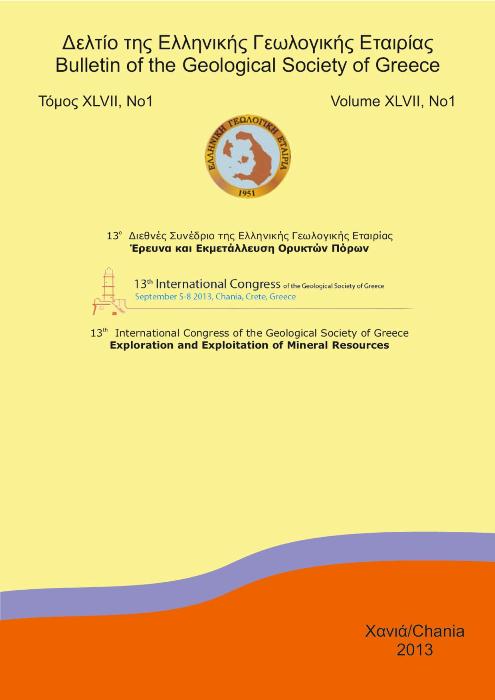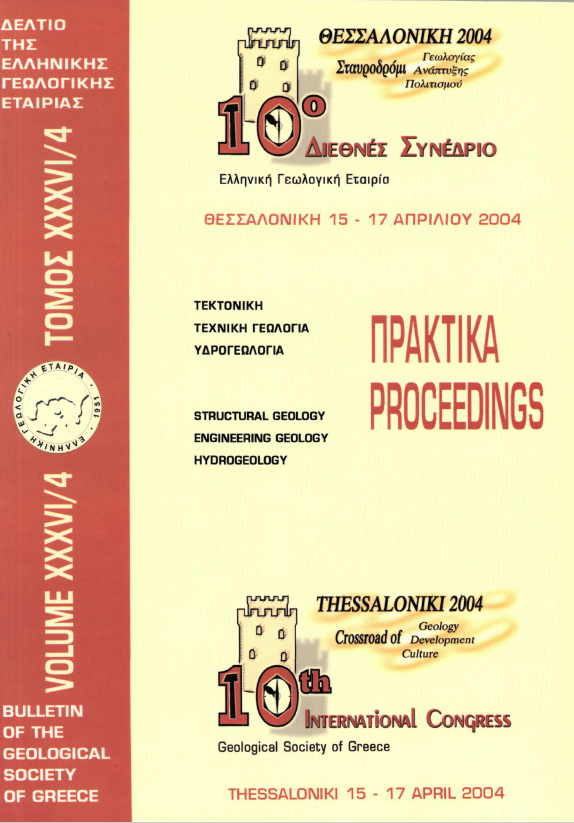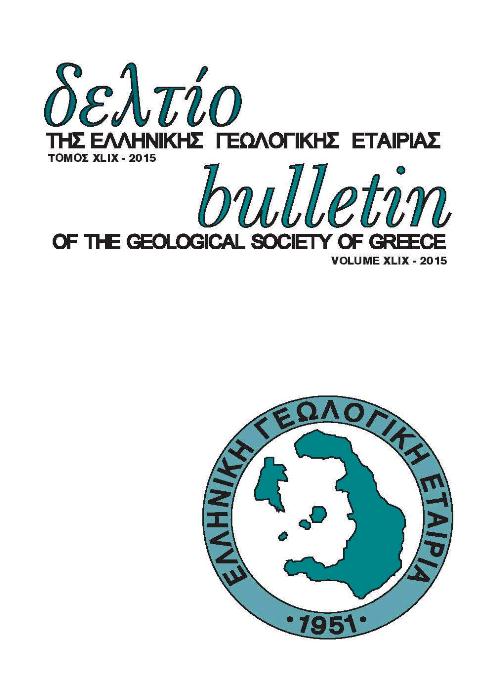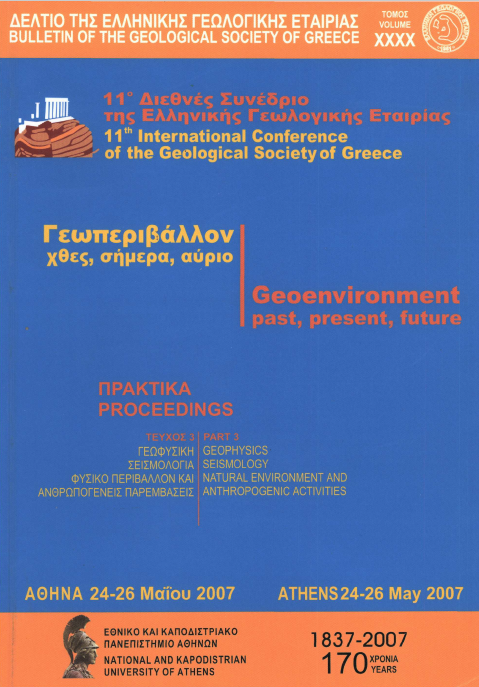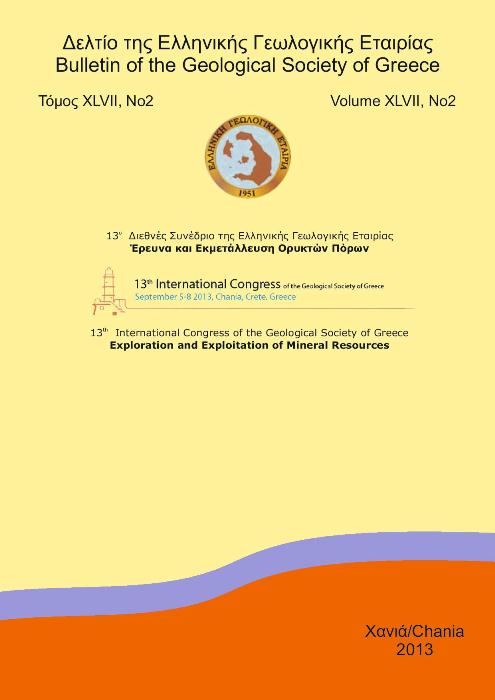IRON-OXIDE MINERALIZATION OF SESI, KOROPI (S. HYMITTOS, GREECE): MINERALIZATION WITHIN A DETACHMENT ZONE
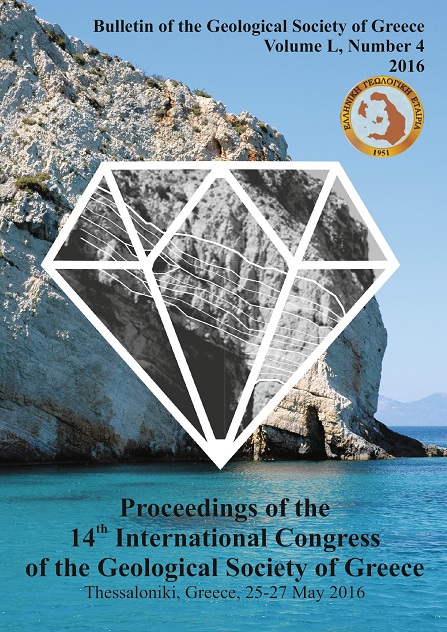
Abstract
Small occurrences of iron-oxide deposits at Sesi-Koropi in S. Hymittos, are hosted by an extensional brittle detachment zone between carbonate rocks of "Vari-Kirou Pira" and "Hymittos" units. Another low-angle fault separates a heterogeneous formation of schists, containing meta-ophiolitic blocks ("Lavrion" Unit), which is cut by high-angle normal faults that root in the detachment zone, reducing the total structural thickness of "Hymittos" marbles and bringing in contact the meta-ophiolitc lithologies with the "Vari-Kirou Pira" dolomites. Three mine caves were found along the detachment zone indicating that these iron deposits were possibly mined on a very small scale in the past. The mineralization is developed in a cataclastic zone a few meters thick (3-5m), forming thin rusty black encrustations and larger zones of alteration with a reddish to yellow brown hue. Scanning Electron Microscope (SEM) mineralogical study of the iron-ore deposit indicated that hematite is the primary iron-oxide mineral extensively replaced by goethite. Goethite appears with the typical colloidal form within voids showing typical open-space filling type microstructures. According to field evidence and the tectonic macro-structure of the area, the mineralization is associated with hydrothermal fluid circulation along the brittle detachment zone between meta-ophiolitic lithologies and carbonate rocks. Similar type iron-oxides mineralization in cataclastic zones were observed along other detachment zones in northern and southeastern Hymittos Mt. and further south towards Lavrion. This suggests that this type of mineralization is not local but has a broader development and regional implications for the tectonic evolution of the central and SE Attica
Article Details
- How to Cite
-
Stouraiti, C., Lekkas, S., Lozios, S., & Kanellopoulos, C. (2016). IRON-OXIDE MINERALIZATION OF SESI, KOROPI (S. HYMITTOS, GREECE): MINERALIZATION WITHIN A DETACHMENT ZONE. Bulletin of the Geological Society of Greece, 50(4), 2025–2036. https://doi.org/10.12681/bgsg.11949
- Section
- Petrology and Mineralogy

This work is licensed under a Creative Commons Attribution-NonCommercial 4.0 International License.
Authors who publish with this journal agree to the following terms:
Authors retain copyright and grant the journal right of first publication with the work simultaneously licensed under a Creative Commons Attribution Non-Commercial License that allows others to share the work with an acknowledgement of the work's authorship and initial publication in this journal.
Authors are able to enter into separate, additional contractual arrangements for the non-exclusive distribution of the journal's published version of the work (e.g. post it to an institutional repository or publish it in a book), with an acknowledgement of its initial publication in this journal. Authors are permitted and encouraged to post their work online (preferably in institutional repositories or on their website) prior to and during the submission process, as it can lead to productive exchanges, as well as earlier and greater citation of published work.



